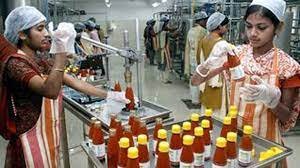Multi Skill Technician (Food Processing)

In the dynamic landscape of the food processing industry, efficiency, quality, and safety are paramount. As technology advances and consumer preferences evolve, the demand for skilled technicians who can adapt to various roles within food processing facilities is on the rise. This demand has given rise to the concept of Multi-Skill Technicians, individuals who possess a diverse set of competencies enabling them to tackle a range of tasks within the food processing environment. In this article, we delve into the significance of Multi-Skill Technicians in the food processing sector and explore the skills required to excel in this multifaceted role.
The Role of Multi-Skill Technicians in Food Processing
Multi-Skill Technicians in food processing play a crucial role in ensuring the smooth operation of facilities while maintaining high standards of quality and safety. Unlike traditional single-role technicians, multi-skill technicians are versatile professionals capable of handling various responsibilities across different areas of food processing, including production, maintenance, quality control, and sanitation.
These technicians are instrumental in minimizing downtime, optimizing production processes, and troubleshooting issues that may arise during the manufacturing process. Their ability to switch between different tasks based on the needs of the facility makes them indispensable assets in today’s fast-paced food processing environment.
Key Skills Required
Becoming a successful Multi-Skill Technician in food processing requires a diverse skill set encompassing technical expertise, problem-solving abilities, and a strong commitment to safety and quality. Below are some of the key skills and competencies that are essential for individuals pursuing a career in this field:
- Technical Proficiency: Multi-Skill Technicians must possess a solid understanding of the equipment and machinery used in food processing facilities. This includes knowledge of various processing techniques, automation systems, and maintenance procedures. They should be adept at operating, calibrating, and troubleshooting equipment to ensure optimal performance and minimal downtime.
- Mechanical and Electrical Skills: Given the complex nature of food processing machinery, technicians must have strong mechanical and electrical aptitude. They should be capable of diagnosing and repairing mechanical and electrical faults promptly to prevent disruptions to the production process.
- Problem-Solving Abilities: Multi-Skill Technicians encounter a wide range of challenges in their day-to-day work, from equipment malfunctions to process inefficiencies. They must possess excellent problem-solving skills to identify root causes, develop effective solutions, and implement corrective actions swiftly.
- Attention to Detail: Maintaining high standards of quality and safety is paramount in the food processing industry. Technicians must pay close attention to detail to ensure that products meet regulatory requirements and adhere to company standards. This includes conducting thorough inspections, documenting process parameters, and adhering to established protocols.
- Adaptability and Flexibility: Food processing facilities often operate in dynamic environments where priorities can shift rapidly. Multi-Skill Technicians must be adaptable and flexible, capable of adjusting their workflow to accommodate changing circumstances and emerging priorities.
- Communication Skills: Effective communication is essential for Multi-Skill Technicians to collaborate with colleagues, convey important information, and report issues accurately. They should be able to communicate clearly and professionally with team members, supervisors, and other stakeholders to ensure smooth coordination and problem resolution.
- Commitment to Safety: Safety is a top priority in food processing facilities to protect both employees and consumers. Multi-Skill Technicians must adhere to strict safety protocols, identify potential hazards, and take proactive measures to mitigate risks. They should undergo regular safety training and promote a culture of safety within the organization.
Training and Development
Becoming a proficient Multi-Skill Technician requires a combination of formal education, on-the-job training, and continuous professional development. Many vocational schools, community colleges, and technical institutes offer programs specifically designed to prepare individuals for careers in food processing.
These programs typically cover topics such as food safety regulations, equipment operation and maintenance, troubleshooting techniques, and quality control principles. Hands-on training in simulated or real-world environments is often included to provide students with practical experience and skills application.
In addition to formal education, on-the-job training is essential for Multi-Skill Technicians to familiarize themselves with the specific equipment, processes, and protocols used in their respective workplaces. Mentoring programs, shadowing opportunities, and cross-training initiatives can facilitate knowledge transfer and skill development among technicians.
Continuous professional development is also critical for Multi-Skill Technicians to stay abreast of industry trends, emerging technologies, and best practices. Engaging in workshops, seminars, and online courses can help technicians expand their knowledge base, enhance their skills, and advance their careers within the food processing sector.

The Future of Multi-Skill Technicians in Food Processing
As the food processing industry continues to evolve, the role of Multi-Skill Technicians is poised to become even more integral. Technological advancements such as automation, data analytics, and robotics are transforming the way food is manufactured, presenting new opportunities and challenges for technicians.
Multi-Skill Technicians with expertise in emerging technologies will be in high demand as food processing facilities seek to improve efficiency, reduce costs, and enhance product quality. Those who can adapt to these changes, embrace innovation, and continue to upskill themselves will be well-positioned to succeed in this dynamic and rewarding field.
In conclusion, Multi-Skill Technicians play a vital role in the success of food processing operations by providing the versatility, expertise, and dedication needed to ensure optimal performance, quality, and safety. By acquiring the necessary skills, undergoing comprehensive training, and embracing lifelong learning, individuals can embark on a fulfilling career as Multi-Skill Technicians in the thriving food processing industry.


